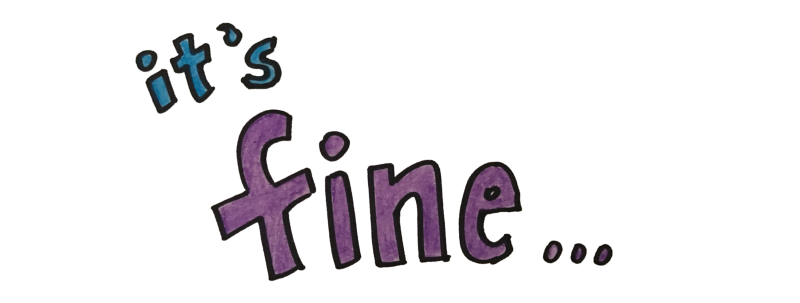How this one tiny word reveals a lot when it comes to employee dissatisfaction.

Listen closely for the word “fine.” It’s never the whole story.
Growing up, my family and I moved around quite a bit. From Georgia to Washington to Ohio to Minnesota… People assumed we were a military family because of how often we moved. But that wasn’t the case.
Each time, we moved because of my dad’s job.
My dad has a Ph.D. in mechanical engineering. His first job coming out of his doctorate program was building robots to clear nuclear waste (nuts, right?). He did that for a few years, but then wanted to get into teaching. So we moved to where he could go teach at a university. After teaching for a handful of years, he wanted to work in business. So we moved again.
With each move, it was clear: There was something more he desired from his job. More growth opportunities, more autonomy, more ways to improve the environment around him.
As a kid, these moves began to wear on me. I had to change schools, make new friends, and be “The New Kid” all over again. It was exhausting. I became perpetually curious: Are we going to have to move again soon? How much is he enjoying his current job?
To get to the bottom of this, I asked my dad one question every day when he would come home from work:
“How’s work going?”
He’d often say the same thing:
“It’s fine.”
That’s what he’d say… But soon enough we would pack up and move yet again. Clearly, things were not “fine.”
This was the first time I observed the disconnect between what we say and how we actually feel — especially in regards to how we feel about our work.This observation stuck with me for a long time.
Years later, after starting my first company when I was 22, I decided to take some time off and go work for someone else. I landed at an early stage e-commerce company right outside Chicago.
I’d been at this e-commerce company for about a year-and-a-half as an employee. One day, I was coming home on the train and I started to reflect on if I was liking my job.
I remember asking myself:
“How’s work going?”
And at the time, I recall thinking to myself:
“It’s fine.”
I laughed. What a familiar situation I’d found myself in. Here I was saying the word “fine” the same way my dad said it to me years earlier.
Just like my dad, things at my job weren’t “fine” at all. I was frustrated with feeling like I couldn’t speak up at work. I felt stifled as an employee, even in such a small company. I was deeply unsatisfied with my job.
Things were not “fine” even though I was saying they were.
I ended up quitting that job to start my own consulting practice helping other employees not feel “fine” about their work. This journey eventually led me to become the CEO of Know Your Team in January 2014.
Now I pay close attention when people use the word, “fine.” Whether I’m asking an employee questions during a one-on-one, or I’m asking a client how things are going, I keenly listen for the word “fine” in her or his response.
To me, “fine” is the ultimate indicator of apathy and discontent. “Fine” means a standard is barely being met. “Fine” means there’s the potential for something to be better. “Fine” means there’s more to learn and dig into.
“Fine” never means “things are fine.”




